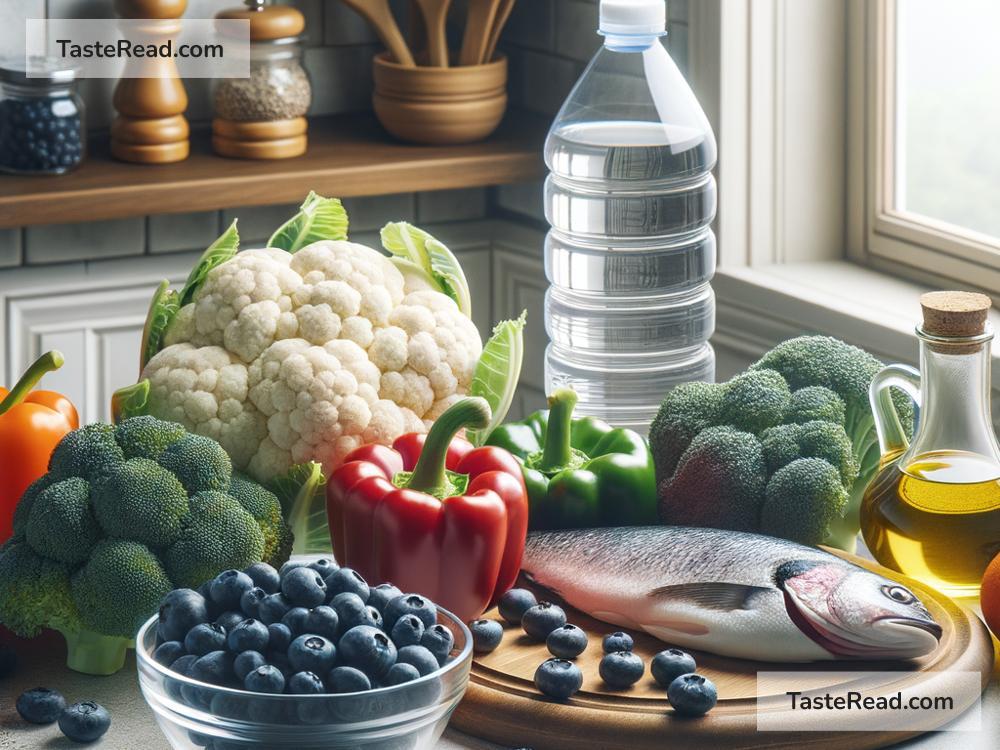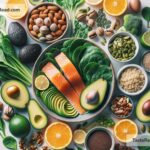Boost Your Kidney Health with These Renal-Friendly Foods
Your kidneys are incredible organs that work tirelessly to filter waste, toxins, and excess fluids from your blood. They help balance electrolytes, regulate blood pressure, and produce hormones that keep your body functioning smoothly. Taking care of your renal (kidney) health is crucial, especially if you’re at risk for kidney disease. One of the easiest ways to help your kidneys stay healthy is by eating the right foods.
In this blog, we’ll explore simple, healthy foods that can improve kidney function and support overall health. Whether you’re looking to protect your kidneys or already managing a kidney condition, this guide will help you make informed dietary choices.
Why Diet Matters for Kidney Health
Your kidneys filter out substances from the food and drinks you consume. Eating a diet high in processed foods, unhealthy fats, and salt can put extra stress on your kidneys. On the other hand, kidney-friendly foods can help reduce strain and provide essential nutrients to keep your kidneys healthy.
For people with chronic kidney disease (CKD), it’s especially important to follow a doctor-approved diet plan. Many CKD patients need to limit certain minerals like sodium, potassium, and phosphorus, but a balanced diet can still provide plenty of variety and taste.
Foods That Are Good for Your Kidneys
Below are some foods that support renal health. Try incorporating them into your meal plan for better kidney function and overall well-being.
1. Leafy Greens (but in moderation)
Dark leafy greens like spinach and kale are packed with vitamins, minerals, and antioxidants. These nutrients help reduce inflammation and oxidative stress, both of which can harm your kidneys. However, people with kidney disease should eat leafy greens cautiously. Spinach and kale contain potassium, and too much potassium can become harmful if your kidneys aren’t functioning properly.
Tip: Choose small portions or substitute with lower-potassium greens, such as cabbage or arugula, based on your needs.
2. Berries
Berries like blueberries, strawberries, cranberries, and raspberries are excellent for kidney health because they’re rich in antioxidants and low in potassium. Antioxidants help protect your kidneys from damage caused by free radicals (harmful molecules in the body). Cranberries, in particular, are beneficial for preventing urinary tract infections, which can impact kidney function.
How to enjoy: Add berries to oatmeal, yogurt, smoothies, or eat them as a snack.
3. Fatty Fish
Salmon, mackerel, sardines, and other fatty fish contain omega-3 fatty acids, which are known to reduce inflammation and improve cardiovascular health. Keeping your heart and blood vessels strong also benefits your kidneys, as they rely on proper blood circulation to do their job.
Serving suggestion: Choose baked, grilled, or steamed fish instead of fried. If you’re watching your phosphorus or potassium intake due to kidney disease, consult your doctor about portion sizes.
4. Cauliflower
Cauliflower is a versatile vegetable that’s low in potassium and packed with vitamin C, folate, and fiber. It also contains compounds that help neutralize toxins and may reduce kidney-related stress. You can use cauliflower as a substitute for higher-potassium foods like potatoes.
Ideas: Steam it, roast it, or mash it for a kidney-friendly side dish.
5. Apples
Everyone loves apples, and they’re great for your kidneys too! Apples contain fiber and anti-inflammatory properties that promote kidney health. They’re also low in potassium, making them safe for people with CKD to enjoy.
Quick snack: Eat an apple raw, slice it into salads, or pair it with peanut butter for a satisfying treat.
6. Garlic
Garlic is not only flavorful but also rich in antioxidants and anti-inflammatory compounds that protect the kidneys. It may also help lower high blood pressure, which is a major risk factor for kidney disease.
Cooking tip: Use garlic as a seasoning to reduce your need for added salt.
7. Olive Oil
Olive oil is a healthy fat that’s great for people worried about kidney health. It contains antioxidants and anti-inflammatory compounds that can benefit renal function. Plus, it’s a heart-healthy choice, making it a perfect alternative to unhealthy fats often found in processed foods.
Usage: Drizzle olive oil on salads, vegetables, or use it for cooking instead of butter or margarine.
8. Water
Technically, water isn’t a food, but it’s one of the easiest ways to help your kidneys stay healthy. Staying hydrated allows your kidneys to flush out toxins and waste effectively. Just make sure not to overdo it—people with kidney conditions may need specific guidance on fluid intake.
Pro tip: Drink water regularly throughout the day instead of sugary drinks or sodas.
Foods to Avoid
While certain foods can improve kidney health, others can harm it. Limit or avoid foods high in sodium, processed sugars, saturated fats, and phosphorus. Examples include processed meats, junk food, canned soups, and soda. Excessive salt and unhealthy foods can worsen kidney strain and lead to complications.
Final Thoughts on Renal Health
Your kidneys are vital organs that deserve care and attention. By choosing kidney-friendly foods like berries, cauliflower, and fatty fish, you can support your renal function and overall health. Every small change in your diet counts, so start with one or two adjustments and build from there.
If you’re managing kidney disease or at risk, consult a dietitian or healthcare provider to create a personalized eating plan tailored to your needs. Let your meals be a source of nourishment and healing for your kidneys!
Want to learn more about kidney health? Share your thoughts or questions in the comments below!


